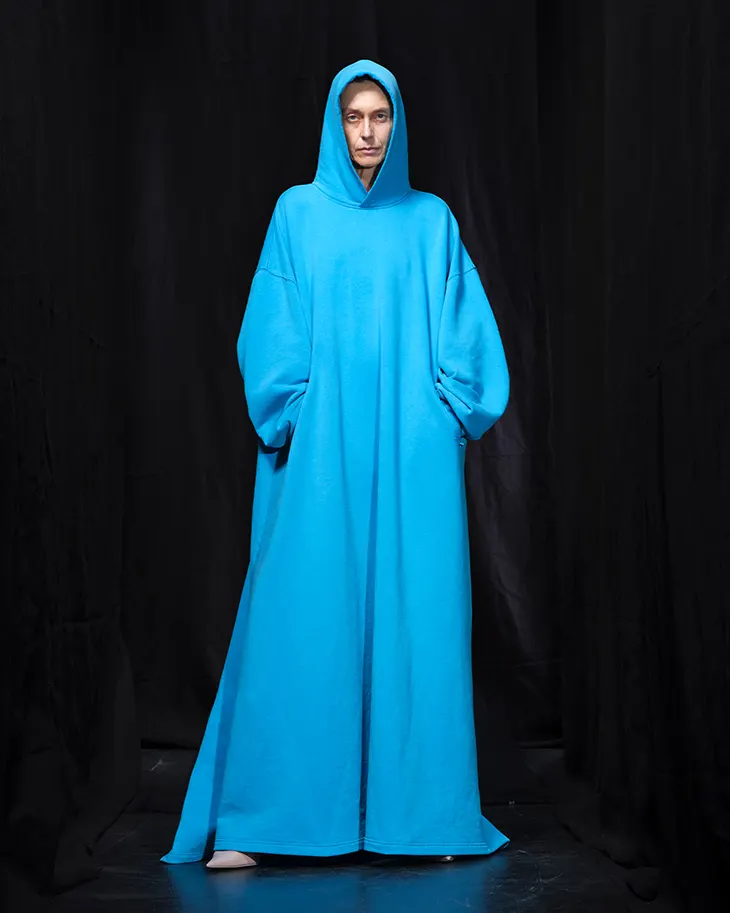
Kering has announced that Demna will take the helm as Artistic Director of Gucci, with his tenure beginning in July 2025. The appointment marks a crucial moment for both the designer and the brand, as Gucci looks to redefine its creative identity following years of fluctuating market performance.
Demna, who has led Balenciaga since 2015, transformed the storied house into a powerhouse of subversive luxury. His tenure was defined by an avant-garde approach, merging irony, dystopian aesthetics, and high-fashion craftsmanship. From reimagining everyday objects into statement pieces, think IKEA-inspired totes and intentionally distressed sneakers, to challenging the traditional runway format with politically charged presentations, Demna positioned Balenciaga as the ultimate symbol of modern cultural commentary. His ability to tap into the zeitgeist made him one of the most talked-about designers of the past decade, but his approach also sparked controversy. Can this same experimental sensibility work for Gucci, a brand that, under Alessandro Michele, thrived on maximalist romanticism, and later, under Sabato De Sarno, attempted a more refined but less impactful aesthetic?
Gucci, a brand that has long balanced heritage with reinvention, is at a crossroads. After years of skyrocketing success under Michele’s maximalist vision, the brand’s recent efforts to pare back and embrace a quieter luxury approach have been met with mixed reactions. The question now is: Will Demna apply his signature irreverence to Gucci, or will he adapt to a more commercially viable vision?
François-Henri Pinault, Chairman and CEO of Kering, emphasized that Demna’s “creative power is exactly what Gucci needs,” signaling that the house may be looking to recapture the buzz and cultural relevance that defined its past successes. Meanwhile, Francesca Bellettini, Kering’s Deputy CEO in charge of Brand Development, framed Demna’s appointment as a means to “reignite Gucci’s creative energy,” reinforcing the notion that the brand seeks a bolder, more disruptive narrative moving forward.

Stefano Cantino, Gucci’s CEO, praised Demna’s ability to “honor the iconic legacy of a brand while embracing a modern sensibility.” But what does honoring Gucci’s legacy look like in this context? While Demna has proven he can reinterpret historical elements, his reworking of Cristóbal Balenciaga’s couture silhouettes was met with widespread acclaim, Gucci’s identity has always been tied to a different kind of storytelling. Its narrative has historically oscillated between sleek, refined elegance and eccentric, eclectic extravagance. Can Demna strike the right balance between reinvention and brand loyalty?
Moreover, Balenciaga’s strength under Demna was largely due to its ability to harness internet culture, meme-ification, and provocative marketing tactics. Gucci, however, has a broader consumer base that spans multiple generations, from Gen Z streetwear aficionados to legacy clients who remember Tom Ford’s high-gloss sensuality. How will Demna navigate these diverse expectations without alienating any key segment of Gucci’s audience?
Demna himself has expressed excitement about “writing a new chapter” for Gucci. His appointment suggests that Kering is prioritizing a return to cultural dominance, even if it means taking risks. Whether he will lean into his signature aesthetic or surprise the industry with a completely new approach remains to be seen.
As July 2025 approaches, the fashion industry will be watching closely. Will Demna’s Gucci be another revolution, or will it mark a new phase of refinement for the designer? If his past is any indication, the answer is unlikely to be predictable.


















